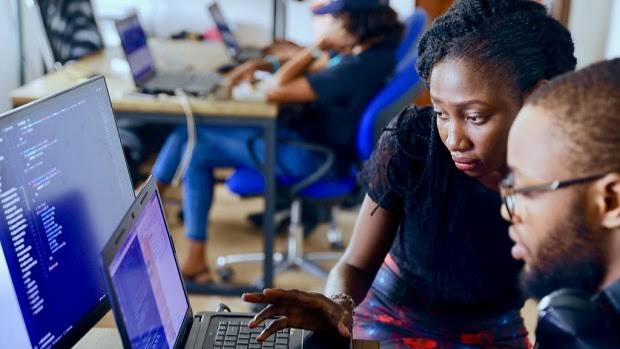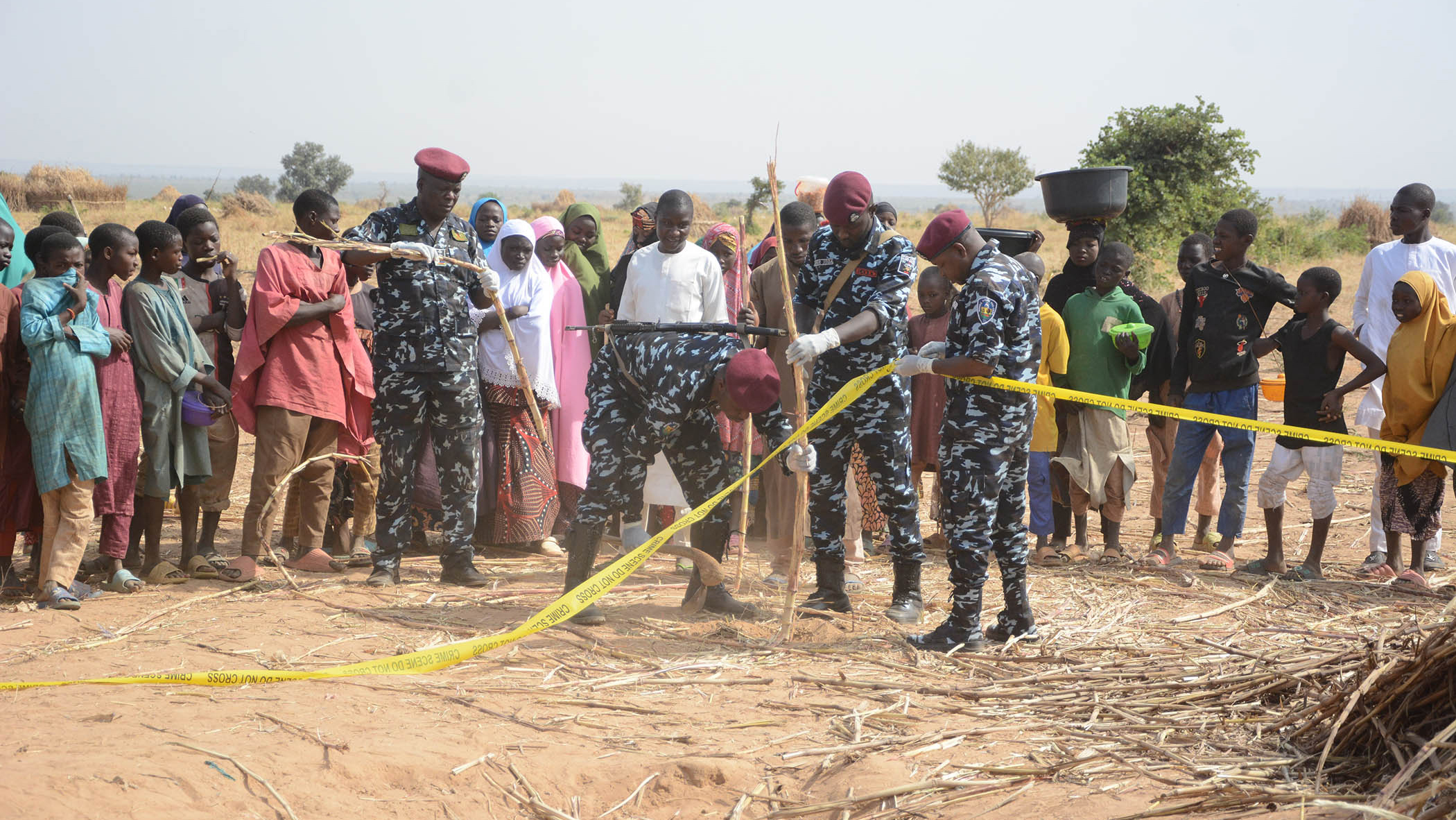 It is somewhat astonishing that, despite all efforts, a sizable portion of the world’s population still lacks access to Internet services, with significant differences between nations and territories.
It is somewhat astonishing that, despite all efforts, a sizable portion of the world’s population still lacks access to Internet services, with significant differences between nations and territories.
The goal of digital inclusion, also known as e-inclusion, is to make technology available to everyone and to provide them the digital skills necessary to use these tools as a catalyst for their social and economic integration. Digital inclusion, however, refers to people’s technical competence and their capacity to access relevant digital services and contents when necessary. It goes beyond internet literacy and computer access.
Nigeria has 109.2 million internet users in January 2022, according to a Data Reportal analysis, which suggests that only roughly 51% of the country’s total population had access to even the most basic ICT infrastructure. With only 22% of its population having access to the internet, Africa is well behind other continents from that standpoint, yet the tale remains the same. This makes it obvious that the digital divide in Nigeria and Africa as a whole is significant.
The way we live is changing as a result of this new arrangement. The development of both emerging and developed economies is being fueled by digital technology on a global scale.
Data is the new oil, or so we’ve heard. Africa’s ecosystem for digital technology is developing. In spite of the challenges the continent has faced, youth, who make up 70% of the population, are using innovation to transform a number of industries, including banking and finance, health, education, agriculture, and hospitality. This phenomenon is compared to a moving train that cannot be stopped.
It follows that going digital is no longer an option as addressing barriers to digital inclusion in Africa has become an issue to look into. Digitalization has the potential to transform societies, with benefits for all sectors in Africa. Among these problems are:
• Digital literacy: which is the ability to use digital tools, including computers, smartphones, and the internet.
• Connectivity: which means access to the internet via broadband, wi-fi, and mobile devices. The correct infrastructure is necessary, but that is only the beginning.
• Accessibility: i.e., Services must be created to satisfy the requirements of all users, including those who rely on assistive technology to use digital services.
Therefore, it is essential for the African mobile ecosystem to look at the concrete measures that can and must be taken by all parties to foster collaboration, such as coordinating and enabling policies promoting digital and financial inclusion, extending affordable access to mobile and internet services, empowering citizens to take advantage of new opportunities, and supporting the necessary investment at macro and micro levels, among other things.
Emphasizing technology’s role in resolving Africa’s urgent issues has grown into a significant endeavor with the future of work in mind. Developing a digital strategy for a nation in Africa and considering the applicability and timeliness of digital solutions to Africa’s urgent problems.
The potential and advantages offered by mobile connectivity are vast, both in terms of the social (such as greater access to public services, finance, education, and healthcare) and private (such as improved and simpler communication and new play modes) spheres. The digital divide must be addressed on both the infrastructure and socioeconomic levels in order to fully realize the benefits of connectivity, which calls for comprehensive policy action from all parties.
Some businesses and individuals are at the vanguard of this fight against digital obstacles, aiming to create the necessary infrastructure, legislation, products, and services that will enhance access to inexpensive digital devices and the internet while addressing immediate challenges.
In Nigeria, companies like CChub, Andela, MTN, Safari, Tingo Inc. Microsoft and Intel, just to mention a few are working in collaboration with government agencies, proposing policies and providing products and services to get in front of the country’s lag in digital literacy.
MTN being at the forefront of the African continent’s digital economy is driven to deliver on their strategic intent — Ambition 2025: Leading digital solutions for Africa’s progress. MTN has a clear plan to ensure that everyone in their markets can enjoy the benefits of a modern connected life with what they call ‘CHASE’ which stands for
Coverage: To ensure sufficient coverage in rural areas, in 2021 they increased the number of rollout partners and introduced new partnership models, rolling out 912 rural sites.
Handsets: To increase the affordability of and customer access to data-enabled devices, according to them, in 2021 they placed 3.1 million 3G and 4G devices in the hands of their customers.
Affordability: To increase data service affordability, in 2021 they claim to have reduced their effective data tariff by 15.3%.
Service bundling: To create service offerings that are relevant, simple and meaningful to customers, in 2021. MTN provided different customer groups with different propositions, tailoring their offerings to include microbundles, social media bundles and XtraByte
Education and ease of access: To enhance digital literacy and the ease with which data can be accessed, in 2021 the MTN Group trained 24 million people in the 12 markets in which they offer their ‘MTN Data-Smart’ digital literacy programme.
According to MTN Group Consumer Executive, Enzo Scarcella, “Providing a quality broadband network is essential, but not enough: there are various other interventions required to make sure that no-one is left behind,”. He noted that “People also need 3G-enabled handsets; affordable data; relevant service offerings; as well as education to equip them with the skills to make the most of all that the mobile internet has to offer.”
Another example of business leveraging technology and digital inclusion to bridge the gap is Greymate Care, an health care technology business established by Chika Madubuko in 2016 to offer vulnerable patients with care on demand. According to Madubuko, Greymate Care today employs over 1,000 caregivers, all of whom have received training in emergency first aid, food hygiene, primary care, and health and safety.
In a society where there is hunger, malnutrition, and a lack of food, farmers struggle to access opportunities and resources to grow their crops and even transport them to the right markets due to a number of obstacles, one of which is the lack of digital inclusion and digitalization. By giving them a platform for digital inclusion and connectivity, Tingo is one company that has stepped in to close the gap and save the average farmer from this menace bedevilling their livelihood. It is a business that helps rural farming communities connect through its unique platform in order to meet all of their needs for inputs, agronomy, off-take, and the market, which generates sustainable income in a significant way.
Tingo International Holdings Inc. founded by Dozy Mmobuosi is an Agri-Fintech company offering a comprehensive platform service through use of smartphones (using GSM technology) to empower a marketplace to enable subscribers/farmers within and outside of the agricultural sector to manage their commercial activities of growing and selling their production to market participants both domestically and internationally. It is a device and a service technology company focused on creating digitally inclusive ecosystems in the AgriTech and FinTech sectors in Africa. These amongst many of his solution oriented initiatives recently led to his appointment on the Commonwealth Advisory Board by The Commonwealth Enterprise & Investment Council (CWEIC).
Temie Giwa-Tubosun is also one individual whose business initiative is leveraging on technology to drive real time change. Lifebank was established by Temie in January 2016 as a corporate organization to address Nigeria’s blood scarcity issue. A medical distribution startup called LifeBank searches for and sends vital medical supplies to hospitals in Nigeria using data and technology.
The issue of meeting the United Nations 2030 Sustainable Development Goal is posed by digital inclusion, a topic that keeps coming up. People’s ability to access the internet continues to be significantly hampered by factors including the expanding population, advancing age, gender, education, and the economics, among others. The instantaneous interchange of information has given people access to more knowledge, information, data, and other useful things than at any previous time in history. The need for digital inclusion and participation in the exciting historical development of ICTs becomes apparent to people at this point.






